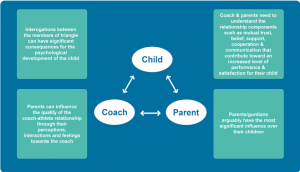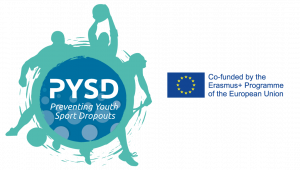Goals and main outcomes
The main goal of the project is to promote education in and through sport with special focus on skills development, fighting the early abandons of sport activities by the teenagers.
This new sports model addresses to answer the possible different sports needs of young people and which could represent a solution to recover young burn-out from the competition and young burn-out due to exclusion of tough top-level scouting.
As stressed by several research studies, several of the reasons for children and youth dropping out of sports are connected to three main constraints:
- Intrapersonal Constraints, like “Not having fun”
- Interpersonal Constraints, particularly due to Parental pressures and loss of ownership and to “Not having enough time to participate in other age appropriate activities”.
- Structural Constraints, like Sports related injuries, Overuse/Burn out, Not being given playing time, Feeling that participation is too structured and there is not enough time for free play or just being a kid, Financial constraints.
The project PYSD aims to create a best practice model, issued from activities carried on real sport activities to provide clear technical guidelines for trainers, coaches and sport association.
How to minimize sports drop outs and increase youth engagement?
Research studies suggest several strategies, eventually to be merged together:
- Redefine sports goal away from winning towards having fun.
- Balance parental involvement.
- Encourage multiple sport participation.
- Enable children to have autonomy and ownership over game experiences.
- Encourage rules that give every child a chance to play.
- Decrease parental pressure about winning.
- Parents should avoid living their sports dreams through their children.
- Sport participation should begin at an appropriate age.
 PYSD best practices possibly adopted by each partner, towards the resolution of the above-mentioned phenomenon, boost the creation of a standardized prevention method.
PYSD best practices possibly adopted by each partner, towards the resolution of the above-mentioned phenomenon, boost the creation of a standardized prevention method.
The psychophysical wellness derived from sports activities, when not strictly linked to the necessity to reach an award, represents the key to stimulate the necessity to play sports. Limits and national-local habits, which negatively affect the sports abandon, can be overcome thanks to the sharing of partners’ best practices and through the implementation of an alternative way of sport playing. The latter is based on outcomes and training methods independent from the direct relationship “age-capacity-skills-award” usually leading to the discouragement of sportive young people who are out of this ratio.
The project PYSD measures the effectiveness of the standardized prevention methodology (i.e. main outcome of the present proposal) through a specific monitoring of project development in order to fine-tune the procedure and to ensure the related sustainability. In particular, PYSD will identify a standard procedure, which looks at:
- Monitoring of the psychic-physic satisfaction rate of the young athletes involved.
- Enhancing of an innovative sport model grounded on goals, awards and training methods not bound to the direct relationship “age-capacity-skills-award”, which usually leads to the exclusion of the sportive young people who are out of this scheme.
- Spreading of instruments useful to aid the young people to be aware about wellness derived from sport activities in terms of health, way of life, development of personality and relationship with the others.
The approach intends to be sufficiently abstract in order to guarantee an easy transferability in different geographical contexts and independently of the type of sport activity subject to intervention.
Target Area & Beneficiaries
PYSD is aimed at the whole youth sport sector. The intervention methodology addresses the world of sports associations and physical education at school. The guidelines that will be developed within PYSD will be directly addressed to sports educators, coaches, technical directors.
The beneficiaries of the project will obviously be the young people and their family contexts, but also the coaches themselves and the world of sports associations in general.





